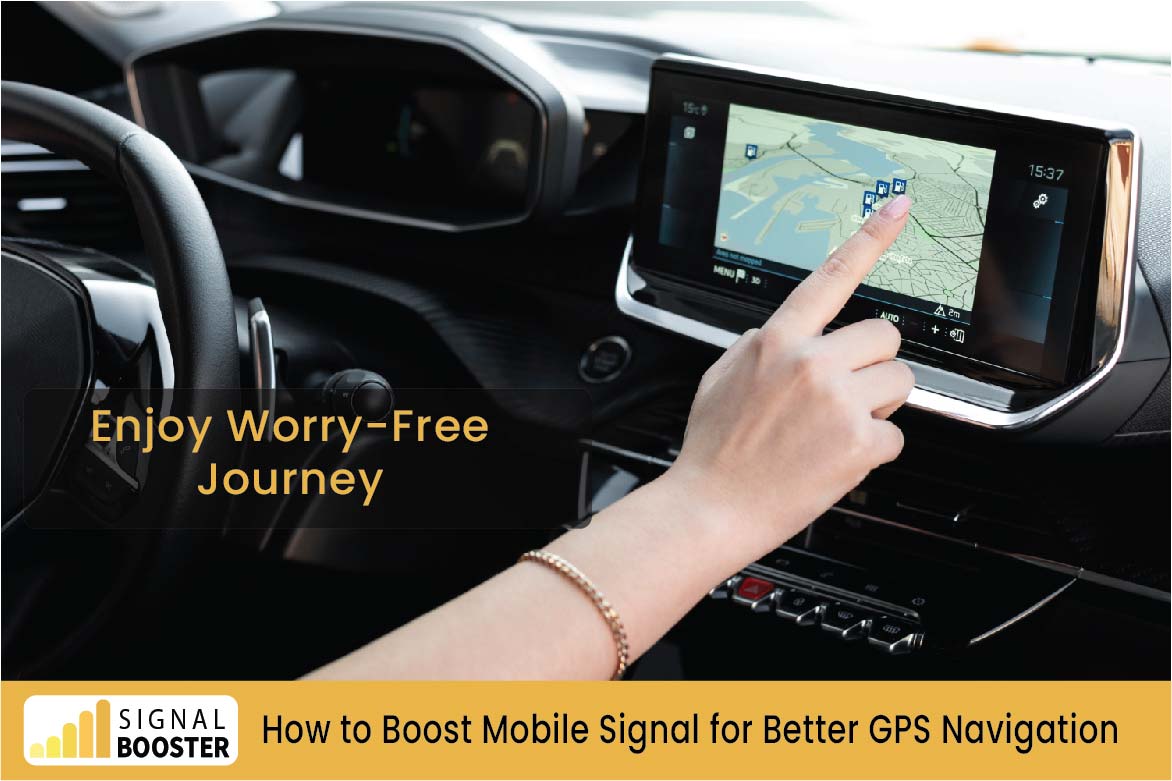
GPS navigation has become an indispensable tool in our daily lives, helping us find our way in unfamiliar places and ensuring we reach our destinations with ease. However, GPS signals can be affected by various factors, such as distance from satellites, obstruction by buildings, and weak mobile signals. A weak mobile signal can lead to inaccurate GPS positioning, delayed directions, and frustration during navigation.
Fortunately, there are several methods to boost your mobile signal for better GPS navigation. Let’s explore some effective strategies:
Before embarking on your journey, check your mobile network’s coverage in the area you plan to travel. Most network providers have coverage maps on their websites, allowing you to determine if the location has strong signal strength.
A-GPS combines GPS satellite signals with data from cellular towers, resulting in quicker and more accurate GPS positioning. Enable A-GPS in your phone settings to improve the speed and accuracy of your GPS navigation.
Ensure your mobile device has a clear line of sight to the sky, as GPS signals are transmitted from satellites above. Avoid using GPS navigation in areas with heavy foliage, tall buildings, or underground spaces.
Invest in a GPS signal booster to amplify the GPS signals received by your mobile device. These boosters enhance the GPS signal reception, especially in areas with weak mobile signals.
Regularly update your GPS navigation app and smartphone software. Updates often include improvements in signal processing and accuracy, leading to a better overall navigation experience.
Keep your phone away from signal blockers such as other electronic devices, metallic surfaces, and thick walls, as they can interfere with GPS signal reception.
Download offline maps for your navigation app, allowing you to use GPS navigation even in areas with poor or no mobile signal. Offline maps rely solely on GPS signals and do not require an active internet connection.
Consider using an external GPS antenna or an external antenna that enhances both mobile and GPS signals. These antennas can significantly improve signal reception, especially in remote areas.
A weak battery can affect GPS signal accuracy. Ensure your phone’s battery is fully charged, or consider using an external power source during navigation.
Avoid using other apps that consume excessive data or bandwidth while using GPS navigation, as this can impact signal strength.
Many modern smartphones have Wi-Fi Assisted GPS, which uses nearby Wi-Fi networks to improve GPS accuracy. When connected to Wi-Fi, your phone can use the Wi-Fi network’s location information to complement GPS signals and provide more precise navigation.
Consider using a signal repeater or signal booster for both your mobile network and Wi-Fi signals. These devices amplify signals and extend coverage, making it beneficial for both navigation and overall connectivity. We recommend using a mobile signal booster to improve your signal for better GPS navigation.
Experiment with the placement of your mobile device during navigation. Sometimes, adjusting the phone’s position, such as mounting it on the dashboard or using a phone holder, can improve signal reception.
Close unnecessary apps running in the background while using GPS navigation. Running multiple apps can consume system resources and potentially impact GPS signal processing.
In certain weather conditions like heavy rain, snow, or thunderstorms, GPS signals might be weaker. During such situations, exercise caution and use additional navigation aids if necessary.
If you notice inaccurate positioning or calibration issues, try recalibrating the GPS on your device. Some smartphones have built-in tools or third-party apps to calibrate the GPS module.
Experiment with different GPS navigation apps to find the one that works best in your region and provides the most accurate results.
Avoid placing your phone on metallic surfaces, as they can interfere with GPS signals. Instead, use non-metallic materials or opt for a non-metallic phone mount during navigation.
In some cases, using an external GPS receiver can improve signal reception, especially in challenging environments like dense urban areas or when driving in remote locations.
Ensure your smartphone’s operating system and GPS navigation apps are up to date. Software updates often include bug fixes and performance improvements that can positively impact GPS accuracy.
By following these tips, you can boost your mobile signal and enhance GPS navigation performance, ensuring you reach your destinations hassle-free and with confidence. Whether you are traveling through remote areas or navigating busy urban streets, a stronger mobile signal will keep you on track and always on time. Happy navigating!
If you have any questions regarding the mobile signal boosters please do contact us and we are always there to help you out.